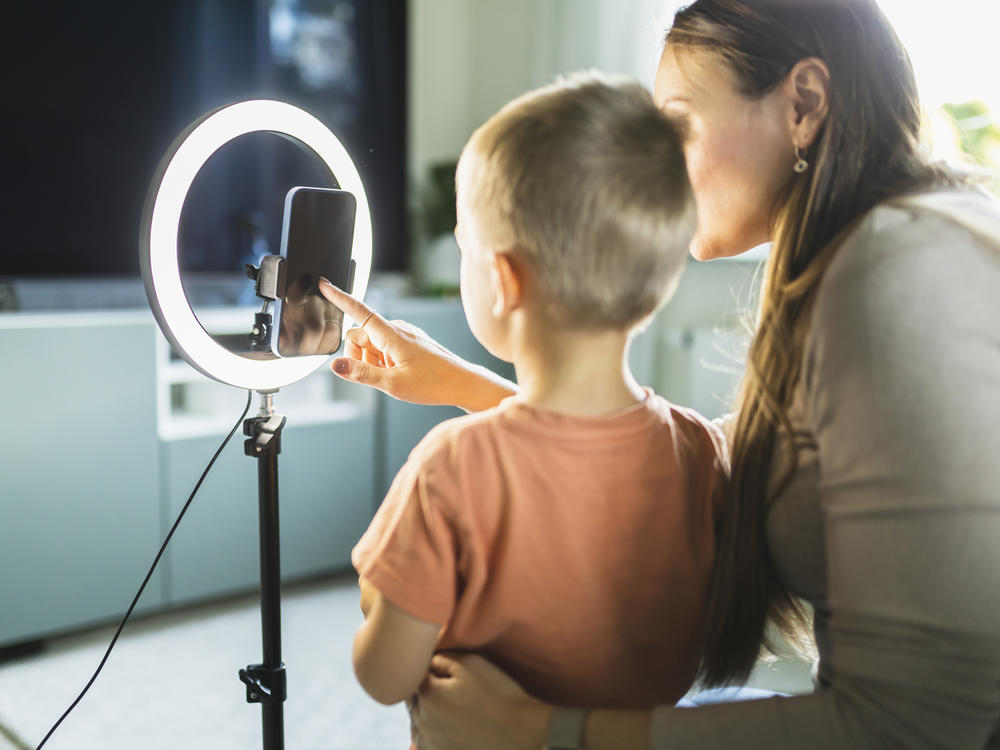Section Branding
Header Content
A new Illinois law wants to ensure child influencers get a share of their earnings
Primary Content
Evoking debates from days where child actors had little protections, the digital age is revealing a need for similar types of oversight.
Who are they? Child influencers are the kids you might see featured on any type of social media content that stands to make a profit.
- This includes videos of children on family YouTube channels or TikToks and sponsored posts on Instagram. Sometimes, the children are the stars of their own accounts.
- This comes as conversation grows online about whether children can consent to their photos or videos being posted or not and how parents oversharing photos or videos – a practice referred to as "sharenting" – might violate a child's privacy.
- This has already fueled similar legislation in France that aims to protect child influencers and ensure they see a fair percentage of their earnings.
What's the big deal? Lawmakers in Illinois have taken notice, and passed the first legislation of its kind in the country to make sure that the children being featured in any online content will be guaranteed a chunk of the profits.
- What originally began as a school project for teenager Shreya Nallamothu became an investigation into the lack of protection for child influencers across the United States. After receiving encouragement from her teacher to share her findings with her state senator, Nallamothu's research helped fuel the legislation.
- The law, which is an amendment to the state's existing child labor laws, entitles child influencers to a percentage of the earnings made from the content they're featured in, and held in a trust until they turn 18.
- Influencing has become a top career choice among children, and can be hugely financially lucrative, with some of the top YouTubers and TikTokers raking in millions annually from brand deals, sponsored posts and advertisements.
Want more on families? Listen to Consider This on the Black maternal mortality crisis
What are people saying? NPR spoke with Fortesa Latifi, a writer for Teen Vogue who has covered child influencers and spoken to some impacted by it.
On how enforceable the law actually is:The onus here is really on the parents. And what this law does is it gives children legislative ability to sue their parents if the money is not saved for them.
On what former child influencers have shared about the experience:
I think one of the fascinating things is how it changes the family dynamic. So one of my sources grew up on a family vlogging YouTube channel. All of the videos together have over a billion views. And she told me that her dad has said to her before, "I am your dad, but I am also your boss."
And at one point, she said, "I don't want to do YouTube anymore." And her dad said, "OK, well, that's fine. But Mom and I are going to have to go back to work. We're going to have to sell this new house."
And, it really flips the dynamic of the parent and the child in a really strange way.
And on how the former child influencers are reacting to the new law:
I mean, they're heartened by the law and what they hope it signals, which is really this movement toward reconsidering the role of children online and what privacy means.
But for a lot of them, this law and any laws that may follow in its wake are really too late.
One source told me, nothing my parents can do now will take back the years of work I had to put in. Childhood cannot be redone. You know, you get one shot at it.
So, what now?
- This new law was structured similarly to Jackie Coogan's 1936 legislation in California, after the child actor discovered his parents had spent all of his earnings from starring in various films.
- And other states are already starting to follow suit, with one lawmaker in Pennsylvania announcing their hope to pass a similar law.
Learn more:
- Social media could be fueling gun violence among young people
- NYC officials are trying to stop the deadly social media trend of 'subway surfing'
- Featuring kids is good business for influencer parents, but at the cost of their future
Copyright 2023 NPR. To see more, visit https://www.npr.org.

